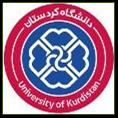Physical Chemistry I (B.Sc. Course)Course Prerequisites: · General Chemistry II · Calculus · Fundamental Physics I
Course DescriptionThis course provides an introduction to the physical foundations of chemical phenomena, focusing on thermodynamics, kinetic theory, and gas behavior. It emphasizes the theoretical principles behind energy changes, molecular motion, and equilibrium, aiming to justify chemical behavior from a physical chemistry standpoint. Both conceptual understanding and problem-solving are emphasized throughout the course.
Course OutlinePart 1: Gas Properties· Ideal gases: properties and behavior · Equations of state for ideal and real gases · Compressibility and critical phenomena · Law of corresponding states Part 2: Kinetic Theory of Gases· Molecular velocity distributions · Different types of molecular speeds · Mean free path · Effusion and diffusion · Equipartition of energy · Collision rate and frequency Part 3: First Law of Thermodynamics· Energy conservation and state functions · Enthalpy and heat capacities · Isothermal and adiabatic processes · Joule and Joule–Thomson effects · Heats of reaction and enthalpy changes · Temperature dependence of internal energy and enthalpy Part 4: Second and Third Laws of Thermodynamics· Entropy and its molecular interpretation · Entropy changes in system, surroundings, and universe · Heat engine efficiency · Helmholtz and Gibbs free energies · Maxwell relations and state functions · Chemical potential and fugacity · Open systems and Gibbs–Duhem equation Part 5: Chemical Equilibrium· Equilibrium constants and standard Gibbs free energy · Temperature and pressure effects on equilibrium
Course MaterialTextbook: Course Resources: |


|
Department of Chemistry, Faculty of Science, University of Kurdistan |

|
Mehdi Irani Teaching duties Methods |
|
|
Weekly Schedule |
|
Session |
Topics |
|
1 |
Introduction to Physical Chemistry (Secs. 1.1–1.4) |
|
2 |
Ideal Gases and Equations of State (Secs. 1.5–1.7) |
|
3 |
Problem Solving – Chapter 1 |
|
4 |
Classical Mechanics, P–V Work, Heat, First Law (Secs. 2.1–2.4) |
|
5 |
Enthalpy, Heat Capacities, Joule & Joule–Thomson Effects (Secs. 2.5–2.8) |
|
6 |
First-Law Calculations, State Functions, Internal Energy (Secs. 2.9–2.11) |
|
7 |
Problem Solving – Chapter 2 |
|
8 |
Real Gases and Equations of State (Secs. 8.1–8.5) |
|
9 |
Critical State, Corresponding States, Real vs Ideal Gases (Secs. 8.6–8.8) |
|
10 |
Problem Solving – Chapter 8 |
|
11 |
Second Law and Heat Engines (Secs. 3.1–3.2) |
|
12 |
Entropy Concepts and Calculations (Secs. 3.3–3.4) |
|
13 |
Reversibility, Temperature Scale, What Is Entropy? (Secs. 3.5–3.7) |
|
14 |
Problem Solving – Chapter 3 |
|
15 |
Midterm Examination 1 |
|
16 |
Equilibrium and Free Energies (Secs. 4.1–4.3) |
|
17 |
Thermodynamic Relations & State Function Changes (Secs. 4.4–4.5) |
|
18 |
Chemical Potentials and Phase Equilibrium (Secs. 4.6–4.8) |
|
19 |
Problem Solving – Chapter 4 |
|
20 |
Standard States & Enthalpies (Secs. 5.1–5.4) |
|
21 |
Reaction Heats, Entropy, Gibbs Energy (Secs. 5.5–5.8) |
|
22 |
Problem Solving – Chapter 5 |
|
23 |
Chemical Potentials and Ideal-Gas Equilibria (Secs. 6.1–6.3) |
|
24 |
Equilibrium Calculations and Simultaneous Equilibria (Secs. 6.4–6.6) |
|
25 |
Problem Solving – Chapter 6 |
|
26 |
Midterm Examination 2 |
|
27 |
Kinetic–Molecular Theory (Secs. 14.1–14.3) |
|
28 |
Speed Distribution in Gases (Sec. 14.4) |
|
29 |
Applications, Collisions, Effusion (Secs. 14.5–14.6) |
|
30 |
Mean Free Path & Barometric Formula (Secs. 14.7–14.8) |
|
31 |
Problem Solving – Chapter 14 |
|
32 |
Boltzmann Distribution and Heat Capacities (Secs. 14.9–14.10) |
|
For the exact date and time of each session, please refer to your Golestan schedule. |
|